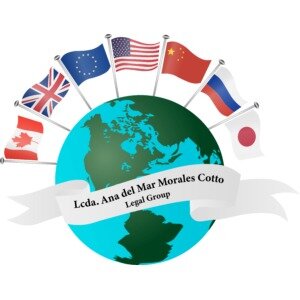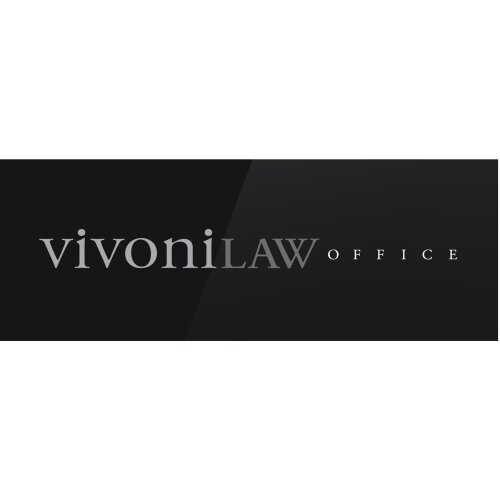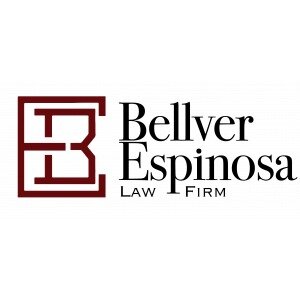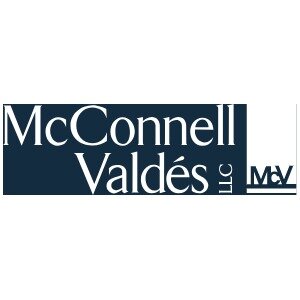Best Renewable & Alternative Energy Lawyers in San Juan
Share your needs with us, get contacted by law firms.
Free. Takes 2 min.
List of the best lawyers in San Juan, Puerto Rico
About Renewable & Alternative Energy Law in San Juan, Puerto Rico
Renewable and alternative energy law in San Juan, Puerto Rico, governs the policies, regulations, and legal frameworks that guide the creation, development, and use of clean energy resources. This field of law addresses solar, wind, hydroelectric, and other forms of alternative energy aimed at reducing reliance on fossil fuels and promoting sustainability on the island. Given Puerto Rico's geographic position and abundant natural resources, renewable and alternative energy represent critical components of its future energy strategy, especially after challenges faced from recent hurricanes and blackouts.
Why You May Need a Lawyer
There are several situations in which individuals, homeowners associations, businesses, developers, and energy companies in San Juan may require legal assistance in the field of renewable and alternative energy:
- Understanding permitting and compliance requirements for installing solar panels or wind turbines on residential or commercial properties
- Navigating interconnection agreements with PREPA (Puerto Rico Electric Power Authority) or private utility companies
- Reviewing and negotiating Power Purchase Agreements (PPAs) for selling energy generated by renewable sources back to the grid
- Resolving disputes over property rights, easements, or shared energy generation systems
- Securing government grants or incentives for clean energy projects
- Managing environmental compliance and impact assessments
- Setting up microgrids or independent power systems for communities or businesses
- Compliance with net metering regulations
Having qualified legal guidance can help ensure you comply with all regulations and take full advantage of rebates, tax incentives, and other support programs available for renewable and alternative energy in San Juan.
Local Laws Overview
San Juan, as the capital of Puerto Rico, operates under both Puerto Rican and U.S. federal laws that relate to renewable and alternative energy. Several key legal points include:
- Puerto Rico Energy Public Policy Act (Act 17-2019) - Aims for 100 percent renewable energy by 2050, sets aggressive renewable portfolio standards, and modernizes the electrical grid for clean energy integration.
- Net Metering Law - Allows consumers who generate their own electricity to receive credit for excess electricity supplied to the grid.
- Permitting Regulations - Requires specific permits and environmental assessments for installation and operation of renewable energy systems, whether residential, commercial, or industrial.
- Incentive Programs - Available at both the local and federal levels, including tax credits, grants, and financing options to promote adoption of solar, wind, and other renewable technologies.
- Environmental Compliance - Renewable energy projects must comply with regulations protecting natural resources and sensitive areas.
- Interconnection Standards - Rules established by PREPA and the Puerto Rico Energy Bureau set out how renewable energy systems must connect to the main grid.
Each renewable energy project must comply with these and other applicable laws, which can be complex and subject to change.
Frequently Asked Questions
What incentives are available for installing renewable energy systems in San Juan?
Options may include federal investment tax credits, local grants or rebates, and commercial financing incentives, depending on the type of project and energy technology.
Do I need a permit to install solar panels on my home?
Yes. Permitting is handled at the municipal and commonwealth level. Approval may involve zoning, construction, and environmental agencies.
Can I sell excess energy from my solar panels back to the grid?
Yes. Net metering laws allow you to supply excess electricity to PREPA’s grid and receive credits on your bill, subject to regulatory requirements.
How do renewable energy laws affect businesses in San Juan?
Laws and incentives may encourage businesses to adopt clean energy through tax breaks, grants, and compliance requirements for sustainability goals.
What is a Power Purchase Agreement (PPA)?
A PPA is a contract between an energy producer and a buyer (often the utility or a business) detailing terms for the sale of electricity generated by a renewable facility.
Are community solar and microgrids legal in San Juan?
Yes, both are permitted and growing in popularity, especially as ways to improve energy reliability and access in local communities.
How do I ensure my project complies with environmental regulations?
Consult with legal counsel to verify that your project meets regulations issued by the Puerto Rico Department of Natural and Environmental Resources, as well as federal laws.
Can I install a wind turbine on my property?
Possible, depending on local zoning ordinances, environmental impact, and compliance with municipal regulations. Permits and assessments are generally required.
Who regulates renewable energy in San Juan?
Local regulation is handled by the Puerto Rico Energy Bureau, Puerto Rico Electric Power Authority, and relevant environmental agencies in collaboration with U.S. federal bodies.
What should I look for in a renewable energy attorney?
Seek lawyers with specific experience in energy regulatory law, local permitting, contract drafting, and environmental compliance in Puerto Rico.
Additional Resources
If you need further information or support, you may find it helpful to contact or consult the following organizations:
- Puerto Rico Energy Bureau (NEPR) - The main agency overseeing energy policy
- Puerto Rico Electric Power Authority (PREPA) - The main public utility for electricity
- Puerto Rico Department of Natural and Environmental Resources (DRNA) - Environmental oversight and permitting
- Office of the Comptroller of Puerto Rico - Information about government incentives and contracts
- U.S. Department of Energy - Information on federal programs and energy grants
- Civic and industry groups such as Asociación de Energía Renovable de Puerto Rico (AERPR)
Next Steps
If you are considering a renewable or alternative energy project in San Juan, Puerto Rico, or facing a legal issue related to energy, the following steps can be helpful:
- Assess your project or legal need and gather relevant documentation
- Research or consult the resources listed above for preliminary information
- Schedule a consultation with a qualified attorney who specializes in renewable and alternative energy law in Puerto Rico
- Prepare questions and goals for your initial legal meeting
- Work closely with legal counsel to ensure compliance with all local and federal laws, secure necessary permits, and protect your interests throughout the project or dispute resolution process
Seeking competent legal advice early can help you navigate the renewable energy landscape more efficiently, secure support, and achieve your clean energy goals in San Juan, Puerto Rico.
Lawzana helps you find the best lawyers and law firms in San Juan through a curated and pre-screened list of qualified legal professionals. Our platform offers rankings and detailed profiles of attorneys and law firms, allowing you to compare based on practice areas, including Renewable & Alternative Energy, experience, and client feedback.
Each profile includes a description of the firm's areas of practice, client reviews, team members and partners, year of establishment, spoken languages, office locations, contact information, social media presence, and any published articles or resources. Most firms on our platform speak English and are experienced in both local and international legal matters.
Get a quote from top-rated law firms in San Juan, Puerto Rico — quickly, securely, and without unnecessary hassle.
Disclaimer:
The information provided on this page is for general informational purposes only and does not constitute legal advice. While we strive to ensure the accuracy and relevance of the content, legal information may change over time, and interpretations of the law can vary. You should always consult with a qualified legal professional for advice specific to your situation.
We disclaim all liability for actions taken or not taken based on the content of this page. If you believe any information is incorrect or outdated, please contact us, and we will review and update it where appropriate.












